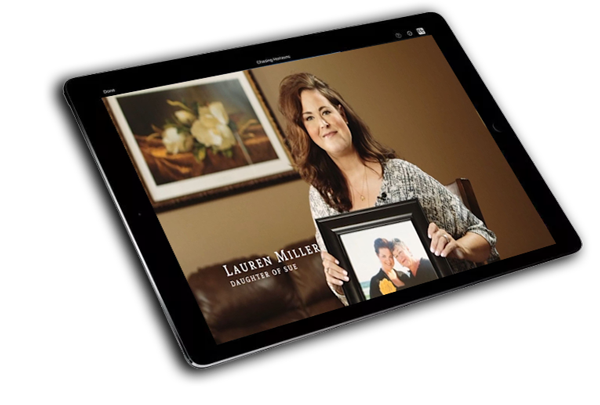Expert care, where you are
To make the most of precious time during life’s final months, count on the expert care from Arkansas Hospice. Our experienced team will help keep your loved one safely at home where they prefer. Comfort care and symptom management become the primary focus for a higher quality of life. Arkansas Hospice cares for patients of all ages diagnosed with a life-limiting illness. We provide care wherever the patient calls home or at one of our Arkansas Hospice inpatient or contracted facilities across our 44-county service area.
Arkansas Hospice is covered by Medicare, Medicaid and most private insurances.
A change in the focus of care
We provide comprehensive care designed with the patient’s comfort and individual needs in mind. The physical, emotional and spiritual support provided is determined by the patient’s wishes and the family’s unique needs. Arkansas Hospice was one of the first providers of hospice care services in the state, and is now the largest nonprofit provider of care in Arkansas. We are proud to be a leader in providing comfort care to patients and their families across our 48-county service area. Arkansas Hospice is:
- Nonprofit and community based
- State licensed
- Medicare/Medicaid certified
- A member of Hospice and Palliative Care Association of Arkansas
- A member of the National Hospice and Palliative Care Organization
- A member of National Partnership for Healthcare and Hospice Innovation
- Recipient of the Healthcare First Hospice Honors elite award for exceptional care and service
- The only healthcare provider in the state certified by the Arkansas Department of Veterans Affairs for nonprofit service to veterans
- Arkansas’s first Five-Star accredited We Honor Veterans Hospice Partner
- Recognized as one of the Best Places to Work in Arkansas

Everyone has a story. CLICK HERE to watch family members of Arkansas Hospice patients tell their stories in their own words. Spouses, children, and even parents of our patients share what they experienced, and how Arkansas Hospice care was there for them, and their loved one.
Arkansas Hospice provides a comprehensive program of care to patients and families facing life-limiting illness. Hospice is the practice of care, not a specific place of care.
Arkansas Hospice enables patients with a projected lifespan of six months or less, due to serious illness, to live their final days to the fullest in the comfort of their homes – or in home-like settings – surrounded by loved ones. Arkansas Hospice can help when:
- There is a life-limiting prognosis.
- Patient and family request expert symptom control and pain management, rather than aggressive, curative treatment. There is an exception for pediatric patients, who can receive Arkansas Hospice comfort care concurrently with curative care treatment.
- The illness has advanced and there are questions about options of care.
In the home
Many patients with advanced illnesses are able to remain in the comfort and security of their own homes while receiving hospice care. Services include:
- Physician-directed care
- Registered nurse visits
- Hospice care team members on call 24 hours a day, 7 days a week
- Social worker services for the patient and family
- Home health aide visits
- Chaplain and spiritual assistance
- Emotional support
- Diagnosis-related medications
- Medical equipment and supplies
- Volunteer support
- Respite care for patient or caregiver
In a nursing home
Arkansas Hospice does not replace nursing home care; it actually supplements those services. As part of that extra care, a hospice nurse will visit the nursing home at least once a week. However, the patient’s nursing home physician will remain in charge of all care, with the hospice nurse following orders from that doctor. Arkansas Hospice has a registered nurse on call every night, including weekends. Arkansas Hospice also will provide medications and medical supplies related to the patient’s hospice care for symptom control and pain relief. Other services Arkansas Hospice provides in the nursing home include:
- Extra bathing and personal care during the week
- Regular visits from hospice-certified volunteers
- Hospice chaplains available 24 hours a day
- Hospice social workers visiting regularly and available 24 hours a day
- Volunteer support
In an inpatient center
While most patients receive care wherever they call home, there may be times when care by hospice professionals around the clock is needed for stabilization and to provide relief for family caregivers. Patients who need evaluation and treatment for pain, nausea or other physical symptoms too difficult to control in their home may receive inpatient care. Inpatient hospice admissions are typically short-term stays for aggressive symptom management to improve quality of life and make it possible for the patient to return to their home setting. In addition to the Arkansas Hospice Ottenheimer Inpatient Center in Little Rock, we contract with other facilities in our service area near you for inpatient care. Learn more about our inpatient care.
Caregiver Support
Family members are encouraged, supported and trained by a team of hospice professionals (including doctors, nurses, hospice aides, chaplains, social workers, volunteers and bereavement specialists) to safely care for their loved ones with help available from Arkansas Hospice 24 hours a day, 7 days a week. If you would like to learn more about how to make a meaningful impact on the patients and families in our care, please visit the Arkansas Hospice Foundation.
Explore our Caregiver Resources for providing caregiving at home with confidence.







 Registered 501(c)(3). EIN:
Registered 501(c)(3). EIN: